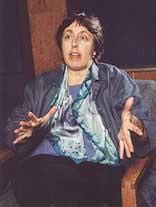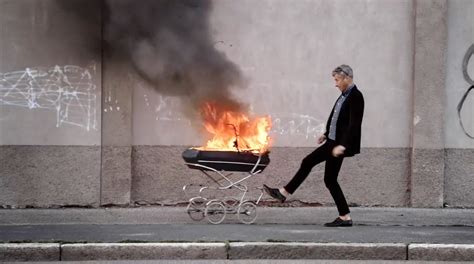A Quote by Paulo Coelho
He is also a victim of some injustice; he usually tries to be alone, in order to show his pain to others.
Related Quotes
No one who passively endures an injustice against himself has the material in him to struggle for the rights of others. The one who patiently forbears becomes an accessory to the injustice done to others. He who resists the injustice which he himself meets can open up the way to a higher right for others.
Torture presupposes, it requires, it craves the abrogation of our capacity to imagine others suffering, dehumanizing them so much that their pain is not our pain. It demands this of the torturer, placing the victim outside and beyond any form of compassion or empathy, but also demands of everyone else the same distancing, the same numbness.
Years ago, I thought that if a person had experienced injustice in her life, it meant she would be fair, because she would know what it meant to be a victim of injustice. But now I am not so sure. Experiencing injustice can also make a person dangerous. Carrying a sense of revenge and anger can make a person victimize their own self.
Every lynching deprives its victim of his life without due process of law, and denies him an equal protection of the law. The States are charged with punishing all such invasions as the common rights of the citizens, but some of them have failed in their effort to do so, and others have not honestly tried. Meanwhile, lynchings continue, and though they do not increase in number, they show some tendency to increase in savagery.
Once the pain-body has taken you over, you want more pain. You become a victim or a perpetrator. You want to inflict pain, or you want to suffer pain, or both. There isn't really much difference between the two. You are not conscious of this, of course, and will vehemently claim that you do not want pain. But look closely and you will find that your thinking and behavior are designed to keep the pain going, for yourself and others. If you were truly conscious of it, the pattern would dissolve, for to want more pain is insanity, and nobody is consciously insane.
Socrates was the chief saint of the Stoics throughout their history ; his attitude at the time of his trial, his refusal to escape, his calmness in the face of death , and his contention that the perpetrator of injustice injures himself more than his victim, all fitted in perfectly with Stoic teaching. So did his indifference to heat and cold, his plainness in matters of food and dress, and his complete independence of all bodily comforts.
Man tries to make for himself in the fashion that suits him best a simplified and intelligible picture of the world; he then tries to some extent to substitute this cosmos of his for the world of experience, and thus to overcome it. This is what the painter, the poet, the speculative philosopher, and the natural scientists do, each in his own fashion. Each makes this cosmos and its construction the pivot of his emotional life, in order to find in this way peace and security which he can not find in the narrow whirlpool of personal experience.
We all suffer alone in the real world. True empathy's impossible. But if a piece of fiction can alow us imaginatively to identify with a character's pain, we might then also more easily conceive of others identifying with their own. This is nourishing, redemptive; we become less alone inside. It might just be that simple.






































